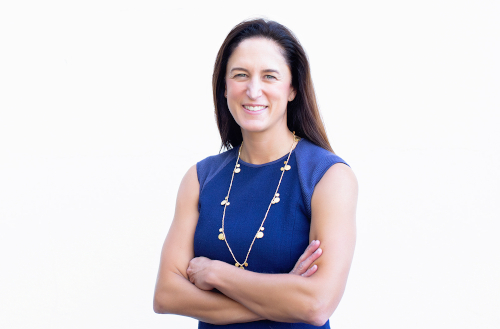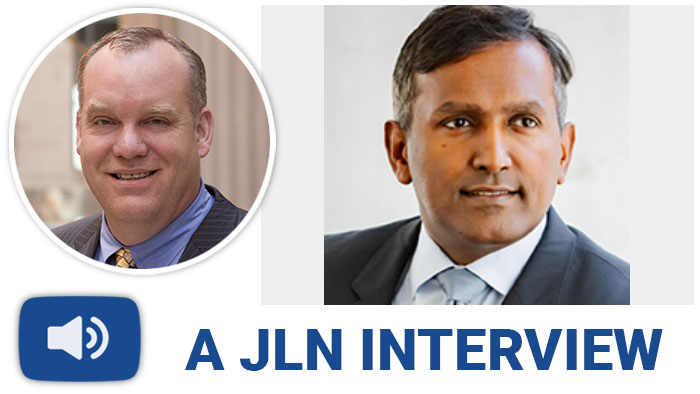Jeff Barbuto is trying to build a new benchmark in U.S. domestic crude oil at Intercontinental Exchange, where he has worked for 21 years running oil and is now the head of global oil markets. The benchmark is HOU, the Midland WTI contract for the Gulf Coast first started five years ago with the help of Magellan Midstream Partners.
Barbuto's efforts to start building the new benchmark started 10 to 15 years ago as issues with supply gluts at Cushing, OK encouraged a solution to move oil from the middle of the country to the Gulf Coast.
In 2011, the Brent-WTI spread went negative for the first time, after running at about a two-dollar premium for the West Texas Intermediate the North Sea Brent crude over, Barbuto said. WTI would go as much at $25 below Brent in 2011 because of supply gluts in Cushing as more Canadian crude oil made its way to Cushing and more pipelines of crude were coming up to Cushing but not having an outlet, Barbuto said.
The infrastructure of Cushing, the so-called pipeline crossroads of the world, was built to bring imported oil in, with crude coming in from the Gulf Coast. As production in the U.S. grew, the glut in Cushing grew, he said. Other oil, like Canadian crude, would also flow to Cushing, he said.
So Barbuto started discussions five years ago with Magellan Midstream Partners about a Gulf Coast benchmark with access to the water, with more direct pipelines to the refining terminals in Houston. He also wanted it to be connected to larger storage facilities.
In 2015, the U.S. lifted a ban it had in place on exporting domestic crude to overseas customers, which also played a role in this.
Magellan and ICE developed a Permian WTI contract and ICE listed it with the symbol HOU. However, CME Group listed a competing futures contract with Enterprise Partners, which split the liquidity and interest. Barbuto said it became clear there was not enough liquidity to support two benchmarks in the same area, so both contracts floundered and never fully developed.
When the demand shock occurred during the COVID-19 pandemic, and WTI spot prices traded negative due to a glut of oil and a lack of available storage at Cushing, that was a catalyst for renewing the effort to build a benchmark for the Gulf Coast, he said.
Barbuto said he was watching CNBC during the fallout from the negative prices and saw Continental Resources' Harold Hamm talk about how negative prices should never happen. Subsequently, Barbuto was able to connect with Hamm and discuss ways to move the benchmark project forward. Hamm was able to connect Enterprise and Magellan, and with ICE they all were able to create the new contract, Midland WTI Gulf Coast or Midland WTI for short. The symbol for the contract is the same, HOU.
The biggest advantage of the new contract is access to the water, Barbuto said. Refiners can pump oil to a sea terminal rather than leave it in tanks in Cushing, he said. Enterprise and Magellan combined have 14 docks, Barbuto said. The HOU contract has a tight Midland WTI specification, as opposed to Cushing, where there is a DSW specification, or domestic sweet blend.
There is deliverability at the Magellan East Houston terminal and the Enterprise Echo terminal. Once oil is piped to Houston, it can be pumped from one facility to the other at no cost until the end of 2023, creating one big pool of fungible Midland WTI exchange guaranteed specification.
Barbuto said there are about five million barrels of Midland WTI HOU oil delivered monthly.
The Brent contract has been evolving for years as production from North Sea fields have continued to fall. ICE and its index partner Platts were looking for a light sweet crude that was similar to other blends deliverable to the contract.
Once the HOU contract was added to the Brent deliverable mix, open interest in Brent has climbed and the number of market participants has increased, Barbuto said.
Barbuto said that HOU is unlikely ever to go negative, mostly because there is almost five times the amount of storage in the Gulf Coast compared to Cushing. Also, the access to the water is an escape valve for supply on the Gulf. Barbuto noted that when WTI went negative, Brent stayed positive.
Some hedge funds are starting to participate in HOU, and the number of participants is about 80 now, he said. Customers who price oil on a differential basis to Cushing are starting to do so versus HOU, which is bringing new business. Open interest continues to climb as more swap positions are converted, he said.
Barbuto said he did not think Cushing would go away as a pricing center, even as HOU becomes the new benchmark. There are still too many deals connected to Cushing WTI prices.
There is room for more terminal sites to participate in the contract, Barbuto said. However, he said there is already an exchange for physical trade using the HOU benchmark, so including other terminals in the Midland WTI benchmark is not necessary.
Barbuto said open interest is about 33,000 contracts, and the first three or four months have about 70 percent of the open interest.
He said one of the biggest advantages of the developing benchmark for clients is having their open contracts in physical delivery futures and over-the-counter swaps contracts in the same clearinghouse. This gives clients margin savings of 90 to 95 percent or so, depending on the day and level of volatility. ICE has 700 futurized swap contracts that clear in the same clearinghouse as the HOU futures. This represents billions of dollars of arb risk to be saved, Barbuto said.


TMX Group recently invested in VettaFi, what it described as "a US-based, privately owned data, analytics, indexing, digital distribution, and thought leadership company" and...

John Lothian News interviewed Tim McCourt, Global Head of Financial and OTC Products at the CME Group and Catherine Yoshimoto, Director of Product Management...